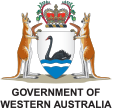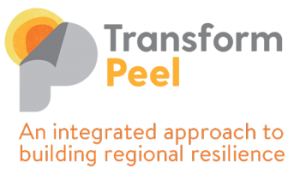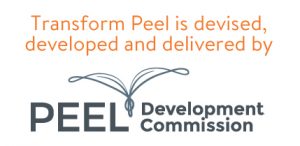Building industry value-chains in Peel :::
The Peel Development Commission is working with several industries to support the establishment of full value-chains within the Peel region. The strategy will lead the development of industry hubs where activities include all stages of production from raw materials, processing, manufacture, packaging and distribution, streamlining the entire process.
One example already attracted to the Peel is Manukalife, a company focused on the production of medical grade manuka honey and the development of products for the medicinal, nutraceutical, pharmaceutical and cosmetic sectors. They are key participant in the newly established Honey Bee Research Centre led by the University of Western Australia, which will bring Australian industry and academic expertise together.
Manukalife and the Rural Industries Research and Development Corporation, in collaboration with Kings Park Botanical Gardens, have entered into a three-year research agreement to conduct plant breeding of High Grade plants that will ensure superior genetics to supply high grade medical Manuka honey. This year they commenced planting 500 hectares of the Leptospermum species, across sites in the Peel and South West. Next year they plan to expand with a further 1000 hectares to deliver critical mass on the supply side and become part of the supply chain that would see the development of a manuka honey processing facility and manufacturing for the different health and medical sectors.
Smart Urban farming, could create jobs and training in Peel.
In an ambitious bid to secure Peel as the focus for future smart urban farming in WA, the Peel Development Commission has committed to a joint venture with Murdoch University’s Singapore Centre for Research Innovation Productivity and Technology. This aim is to achieve a joint venture between government, the university and the private sector resulting in a training facility for glasshouse and vertical farming established in Peel within the next year.
LandCorp encourages Peel landowners to collaborate to attract investors.
The proposed Peel Business Park encompasses land owned by several key regional stakeholders, all of whom want to achieve the best outcome from their land, and for the region. The Transform Peel engagement strategy has focused the efforts of government agencies and landowners not only on attracting businesses to the region, but creating a range of industry hubs and clusters that will boost the Peel economy and create a broad spectrum of jobs for all skill levels.
LandCorp recently invited landowners within the Peel Business Park to a forum facilitated by Woodsome Management, an expert in development of self-managed landowner groups, assuring them a strong voice in negotiations, the ability to influence decisions on deployment of infrastructure, and lead collaborations to attract investment.
The Peel Development Commission believes this is a very positive and vital stage in the effective stakeholder engagement that will secure the best outcome for the region.
Peel farmers participate in soil nutrient mapping project.
Peel-Harvey Catchment Council and Department of Agriculture and Food WA recently ran a workshop in Waroona for farmers interested in improving their fertiliser management. The Soil Nutrient Mapping Project, was made possible through the Regional Estuaries Initiative, and involved soil testing on the properties of the participating farmers, followed by a workshop to discuss the results and expert advise on how to improve their fertiliser management. Response from the participating farmers was extremely positive.
How can I find out more?
Please visit our website and register your interest in participating in future Transform Peel activities and events. If you enjoy social media why not ‘like’ us on Facebook or ‘follow’ us on Twitter, the links are on our websites.
Linda & David
Transform Peel Program Management Office


